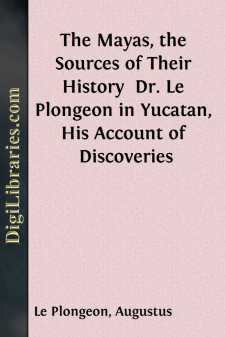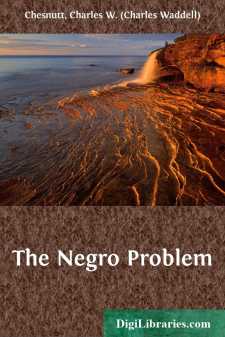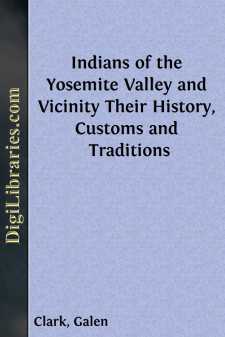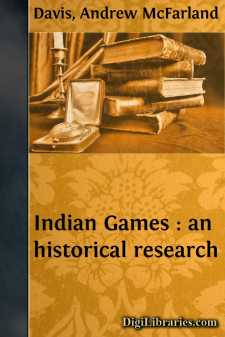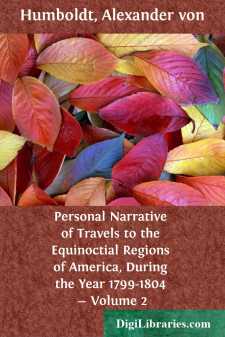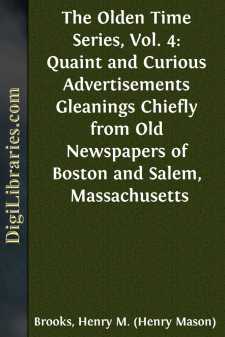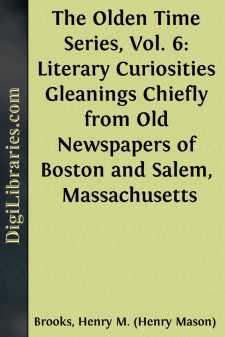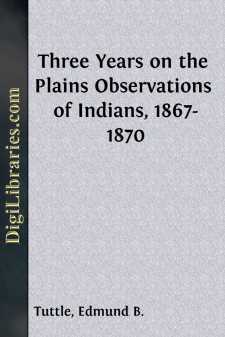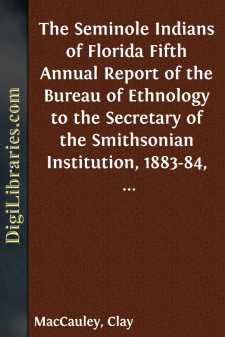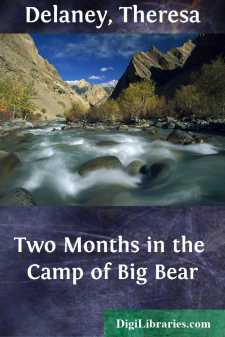History
- Africa 30
- Americas (North Central South West Indies)
- Ancient 68
- Asia 58
- Australia & New Zealand 8
- Canada 41
- Caribbean & West Indies 1
- Civilization 20
- Eastern Europe 12
- Europe 310
- Expeditions & Discoveries 60
- General 77
- Historical Geography 1
- Jewish 9
- Latin America 3
- Medieval 8
- Middle East 14
- Military 248
- Revolutionary 8
- Study & Teaching 5
- United States 353
- Western Europe 56
- World 13
Americas (North Central South West Indies) Books
Sort by:
The most comprehensive and accurate map of Yucatan is that which has been copied for this pamphlet. In the several volumes of travel, descriptive of Maya ruins, are to be found plans more or less complete, intended to illustrate special journeys, but they are only partial in their treatment of this interesting country. The Plano de Yucatan, herewith presented—the work of Sr. Dn. Santiago Nigra de San...
more...
Industrial Education for the Negro By BOOKER T. WASHINGTON, The necessity for the race's learning the difference between being worked and working. He would not confine the Negro to industrial life, but believes that the very best service which any one can render to what is called the "higher education" is to teach the present generation to work and save. This will create the wealth from...
more...
by:
Galen Clark
Chapter One. EARLY HISTORY. During the past few years a rapidly growing interest in the native Indians has been manifested by a large majority of visitors to the Yosemite Valley. They have evinced a great desire to see them in their rudely constructed summer camps, and to purchase some articles of their artistic basket and bead work, to take away as highly prized souvenirs. They are also anxious to...
more...
LACROSSE. In 1667, Nicolas Perrot, then acting as agent of the French government, was received near Saut Sainte Marie with stately courtesy and formal ceremony by the Miamis, to whom he was deputed. A few days after his arrival, the chief of that nation gave him, as an entertainment, a game of lacrosse. [Footnote: Histoire de l'Amerique Septentrionale par M. de Bacqueville de la Potherie, Paris,...
more...
LAKE OF TACARIGUA. HOT SPRINGS OF MARIARA. TOWN OF NUEVA VALENCIA DEL REY. DESCENT TOWARDS THE COASTS OF PORTO CABELLO. The valleys of Aragua form a narrow basin between granitic and calcareous mountains of unequal height. On the north, they are separated by the Sierra Mariara from the sea-coast; and towards the south, the chain of Guacimo and Yusma serves them as a rampart against the heated air of...
more...
CURIOUS ADVERTISEMENTS. Among the mass of advertisements that have appeared from time to time in newspapers are to be found some which are very quaint and curious. Such are not, in all cases, intended by the writers to be so; but they sound so, especially to those persons who have an ear for strange or humorous things. Sometimes, indeed, it is the intention of the writers to attract particular notice...
more...
LITERARY CURIOSITIES. The following humorous lines well describe the difficulty that editors find in pleasing the public. They are expected to know everything, and to be able to satisfy all tastes and capacities. No imperfections can be excused in conductors of newspapers; they are not even allowed to be unfortunate. THE EDITOR.That editor who wills to please,Must humbly crawl upon his knees,And kiss...
more...
by:
Edmund B. Tuttle
INTRODUCTION The interest which boys are taking in all that relates to our Indian tribes, and the greediness they manifest in devouring the sensational stories published so cheaply, filling their imaginations with stories of wild Indian life on the plains and borders, without regard to their truthfulness, cannot but be harmful; and therefore the writer, after three years' experience on the plains,...
more...
by:
Clay MacCauley
LETTER OF TRANSMITTAL Minneapolis, Minn., June 24,1884. Sir: During the winter of 1880-’81 I visited Florida, commissioned by you to inquire into the condition and to ascertain the number of the Indians commonly known as the Seminole then in that State. I spent part of the months of January, February, and March in an endeavor to accomplish this purpose. I have the honor to embody the result of my...
more...
by:
Theresa Delaney
CHAPTER I. WE LEAVE ONTARIO. We left my father's house at Tintern on the 7th of October, 1884, having been married on the 1st, for Parkdale, where we spent a few days with my husband's friends. We started for our home on the 10th by the Canadian Pacific Railway to Owen Sound, thence by boat to Port Arthur, and then on to Winnipeg by rail, where we stopped one night, going on the next day to...
more...


